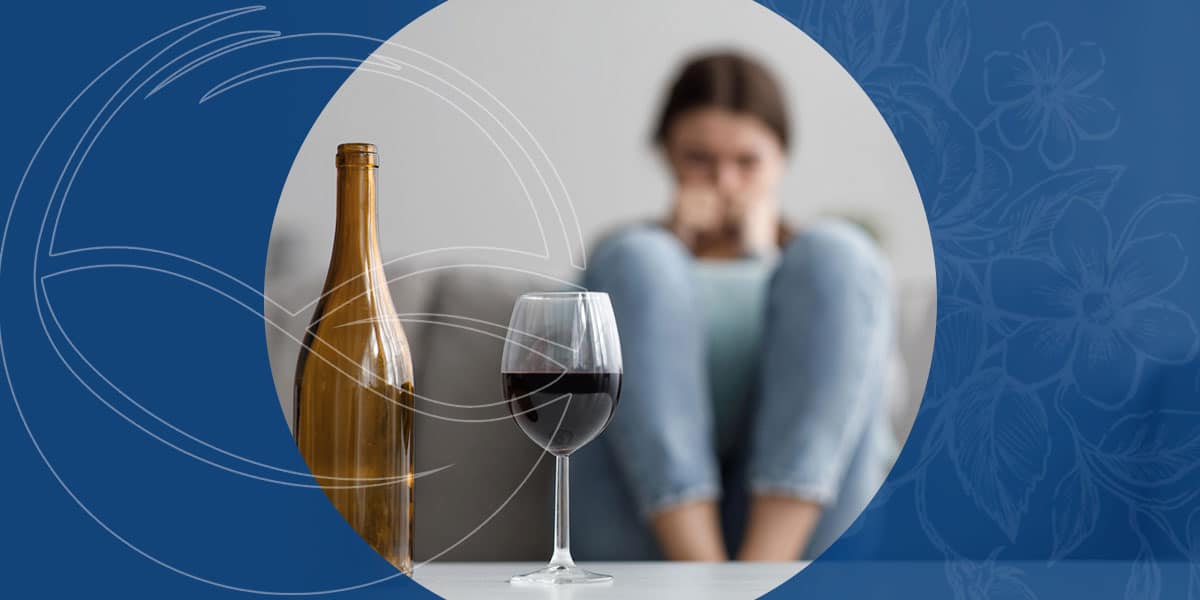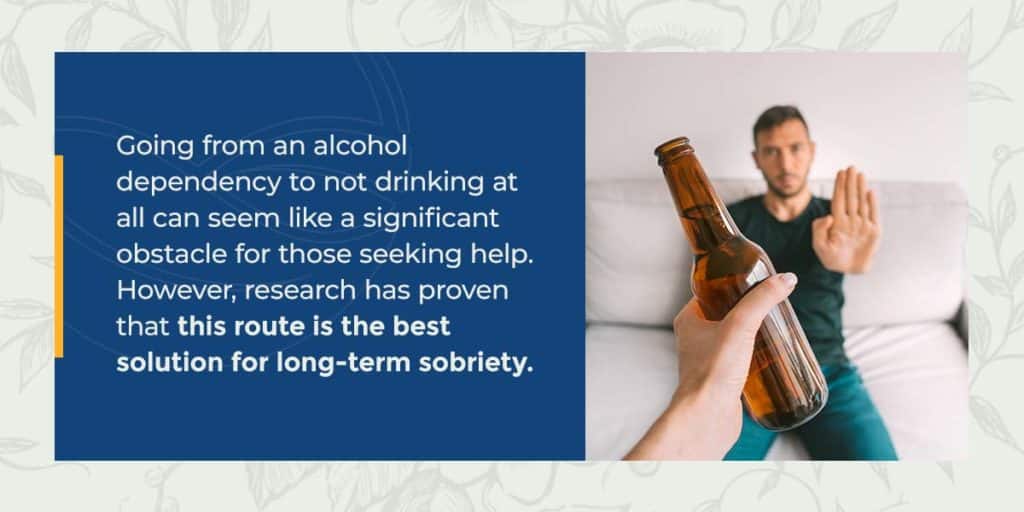

Drinking after sobriety is a thought in the back of many recovering alcoholics’ minds. The healing process prioritizes decreasing dependency on alcoholic beverages, so the ability to have an occasional drink in moderation may seem like a thing of the past. Luckily, with a support team by your side, this recovery period can reinvent your future into a beacon of hope for yourself and everyone around you.
Look at the following criteria for alcoholism and whether you should drink after achieving sobriety.
Before seeking treatment, knowing the difference between alcohol abuse and addiction is vital. Both types can look similar from an outside perspective. However, the primary difference is the ability to control alcohol consumption.
If you think you or a loved one might be experiencing alcohol abuse or dependency, see how many of the following signs relate to your situation.
The most common symptoms of alcohol abuse include the following:
Though those who live with an alcohol abuse medical condition feel a powerful pull to drink heavily and more often, they might not feel as reliant on alcohol as those with a dependency. Alcohol dependence is a chronic disease with slightly different symptoms than alcohol abuse due to the inability to stop drinking.
The most common signs of alcohol dependency include:
The main similarity between these two alcohol uses is the difficulty in saying “no” to a drink at any time. If you or a loved one finds any of the points above relatable to day-to-day life, remember that you are not alone, and that finding the proper diagnosis is the first step to seeking treatment.

The goal during the recovery process is to feel your best and reinvent your future without alcohol. This impressive progress can become a reality with the proper support, treatment and the desire to decline drinks in the future. These goals are achievable with the practice of abstinence, or the ability to stay completely sober during and after recovery.
Going from an alcohol dependency to not drinking at all can seem like a significant obstacle for those seeking help. However, research has proven that this route is the best solution for long-term sobriety. In a recent study on abstinence versus moderation, recovering alcoholics focused on their recovery counseling longer and reported a higher quality of life when practicing abstinence. With these findings in mind, it’s healthier to remain alcohol-free.
The healing journey is different for every recovering alcoholic. Months and sometimes years of counseling, self-reflection and sustained sobriety can become a significant point of pride for those who received the support they needed to feel themselves again. While many striving for improved health and wellness may wonder if a recovered alcoholic can drink again, the best road forward is to avoid drinking in the future.
One of the most rewarding ways to preserve your progress is to stay on this path. Looking forward on the road to recovery is promising for your health, future and relationships with those you love most. Not drinking again and learning to manage your cravings for alcohol is the most efficient way to commit to complete sobriety.
Though having a beer or glass of wine with friends can feel innocent enough, one drink can lead to another, and you might find yourself relapsing. Choosing non-alcoholic beverages can broaden your horizons to new tastes and experiences that benefit your recovery journey.
Thinking about getting sober can come with many questions about your future outside of counseling and medical support. Are you still wondering whether this route is best for you? Imagine how much your health and close relationships will improve when you choose a future without drinking.
If you struggle with alcohol misuse and would like to drink moderately or in social situations, review the following frequently asked questions.
Learning to drink in moderation might be possible, but only if you are 100% confident in your ability to follow the advice you learned from your counselors about following healthy routines and finding alternatives to drinking.
Still, to avoid the potential of relapsing and starting the cycle of alcohol abuse and dependence all over again, teetotaling is a better route for a full recovery.
Going out to dinner with friends, family or co-workers can often trigger a desire to drink. Many people equate drinking with relaxing and having fun, ignoring the potential dangers. Alcohol is so socially acceptable that most people rarely think of how powerful a temptation it can be for those recovering from a substance use disorder.
If you find yourself in an environment surrounded by others who are drinking, the best route for you is to replace alcohol with water, soda or other non-alcoholic drinks. Remember, “only one drink” is a slippery slope that can lead you to lose control. Luckily, practicing abstinence can keep you on the beneficial journey of long-term recovery.
If you or a loved one is seeking a compassionate support system on the road to recovery, Hope for Tomorrow can help! Long-term recovery and sobriety can become your future with the help of our dedicated counselors and various treatment options, including family counseling, cognitive behavioral therapy and group counseling.
At Hope for Tomorrow, we combine compassionate counseling with medication-assisted treatment. Acamprosate, disulfiram or naltrexone help minimize withdrawal symptoms, chemical imbalances in the body and psychological cravings. With these medical benefits and the supportive nature of each counseling session, the recovery process can become a healthy discovery of your strength and determination.
Get in touch with us today to find the best treatment option for you or a loved one.